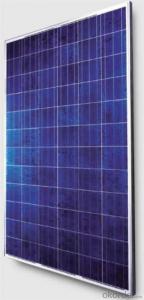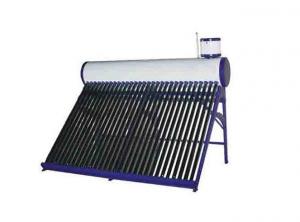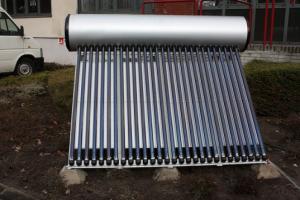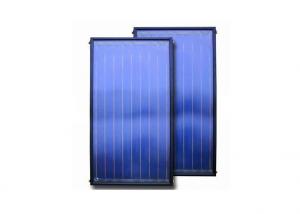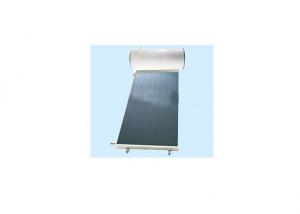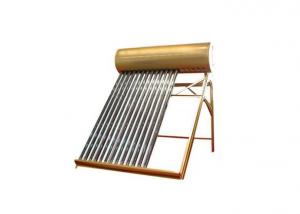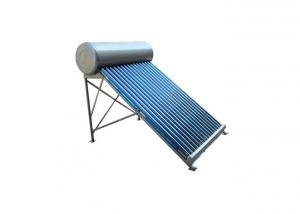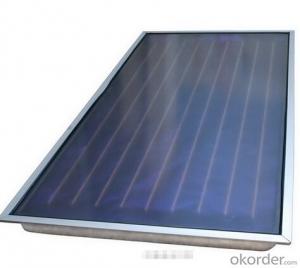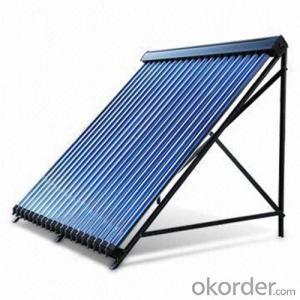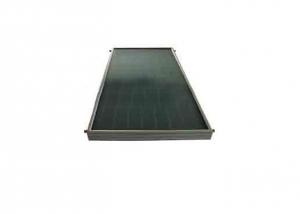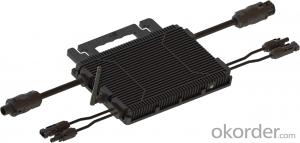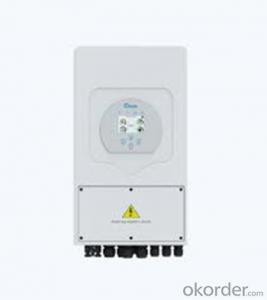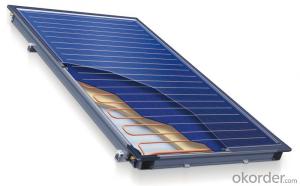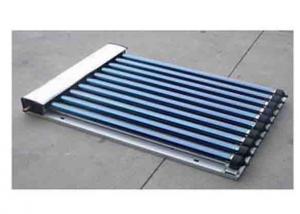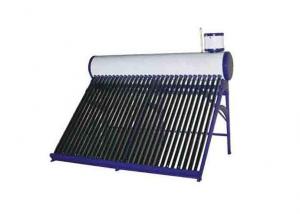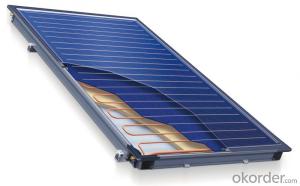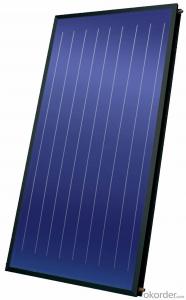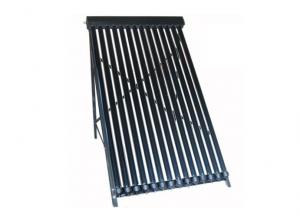CNBM Brand Silicon Modules Made in China
- Loading Port:
- Tianjin
- Payment Terms:
- TT OR LC
- Min Order Qty:
- 1 pallet
- Supply Capability:
- 100000000 pallet/month
OKorder Service Pledge
OKorder Financial Service
You Might Also Like
Solar modules use light energy (photons) from the sun to generate electricity through the photovoltaic effect. The majority of modules use wafer-based crystalline silicon cells or thin-film cells based on cadmium telluride or silicon. The structural (load carrying) member of a module can either be the top layer or the back layer. Cells must also be protected from mechanical damage and moisture. Most solar modules are rigid, but semi-flexible ones are available, based on thin-film cells.
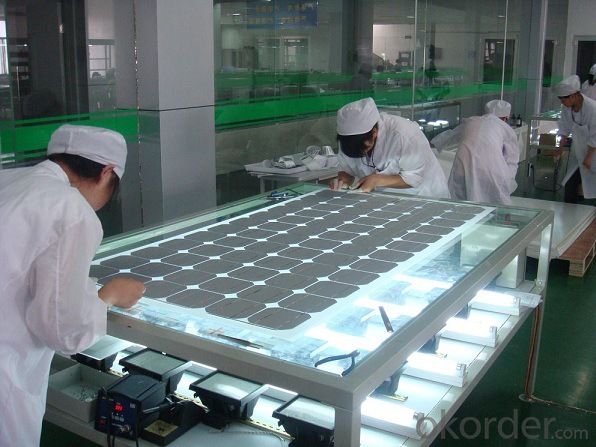
Specifications:
solar panels from 5W--300W, made of TAIWAN MOTECH brand cells,with CO in TAIWAN,Mono and Poly with VDE,IEC,CSA,UL,CE,ISO.
We import solar cells from Taiwan Motech brand, with this CO in taiwan and our CSA certification,we can still sell goods to Anti-dumping areas like USA. Our main products are solar panels, off grid and on grid solar home systems , solar street lighting systems, solar water heating system,solar pump,solar attic fan, solar DC LED lights and solar DC refrigerators.
Certificates : ISO, CE, VDE IEC, MCS, CSA-UL, CEC.
Delivery time: sample 10days, order 25-30days.
Sample: charged.
Payment term: T/T 30% as deposit, 70% before shipment. Or irrevocable L/C at sight.
Trade term: FOB Shenzhen or CIF destination seaport or Airport.
Characteristics:
I.Solar Cell : High efficiency crystalline solar cell. Even if under the weak light, the solar module can produce maximum power output.
II.Tempered glass (toughened glass): Anti-reflecting coating and high transmission rate glass increase the power output and mechanical strength of solar module.
III.EVA and TPT: Using high quality EVA and TPT to prevent destroying and water.
IV.AI frame: Without screw, corner connection. 6 holes on the frame can be installed easily.
V.Junction box: Multi function junction box with water proof.
VI.Long lifetime: ≥25 years; Less power decrease.
VII.Good performance of preventing from atrocious weather such as wind and hails.
VIII.Resisting moisture and etching effectively, not effected by geology.
IX.The certificate issued by international authority: UL, TUV, IEC, VDE, CE.
Quality and Safety
1. Rigorous quality control meets the highest international standards.
2. High-transmissivity low-iron tempered glass, strong aluminium frame.
3. Using UV-resistant silicon.
4. IS09001/14001/CE/TUV/UL
Warranties
1. 10 years limited product warranty
2. 15 years at 90% of the minimal rated power output
3. 25 years at 80% of the minimal rated power output
Technical date :
ITEM NO.: | Poly 156*156 cell ,60pcs . Power range from 230Wp-260Wp | ||||||
Maximum Power(W) | 230 | 235 | 240 | 245 | 250 | 255 | 260 |
Optimum Power Voltage(Vmp) | 29.4 | 29.5 | 29.7 | 30.1 | 30.3 | 30.5 | 30.7 |
Optimum Operatige Current(Imp) | 7.83 | 7.97 | 8.08 | 8.14 | 8.25 | 8.37 | 8.48 |
Open Circuit Voltage(Voc) | 36.7 | 36.8 | 36.9 | 37.1 | 37.3 | 37.5 | 37.7 |
Short Circuit Current(Isc) | 8.52 | 8.59 | 8.62 | 8.65 | 8.69 | 8.73 | 8.78 |
Solar Cell: | 156*156 Poly | ||||||
Number of Cell(pcs) | 6*10 | ||||||
Name of Solar Cells | Polycrystalline Cell | ||||||
Size of Module(mm) | 1650*992*40/45/50 | ||||||
Cable & Connector Type | Pass the TUV Certificate | ||||||
Frame(Material Corners,etc.) | Aluminium-alloy | ||||||
Back sheet | TPT | ||||||
Weight Per Piece(KG) | 19.5KG | ||||||
FF (%) | 70-76% | ||||||
Junction Box Type | Pass the TUV Certificate | ||||||
Tolerance Wattage(e.g.+/-5%) | ±3%, or 0-3% | ||||||
Front Glass Thickness(mm) | 3.2 | ||||||
Temperature Coefficients of Isc(%) | +0.04 | ||||||
Temperature Coefficients of Voc(%) | -0.38 | ||||||
Temperature Coefficients of Pm(%) | -0.47 | ||||||
Temperature Coefficients of Im(%) | +0.04 | ||||||
Temperature Coefficients of Vm(%) | -0.38 | ||||||
Temperature Range | -40°C to +85°C | ||||||
Surface Maximum Load Capacity | 5400Pa | ||||||
Allowable Hail Load | 23m/s ,7.53g | ||||||
Bypass Diode Rating(A) | 12 | ||||||
Warranty | 90% of 10 years, 80% of 25 years. | ||||||
Standard Test Conditions | AM1.5 1000W/ 25 +/-2°C | ||||||
Packing | carton or pallet | ||||||
1*20' | 14 Pallets / 316pcs | ||||||
1*40'STD | 25 Pallets / 700pcs | ||||||
FAQ:
I..Will you focus on the safety of the goods during transportation?
Yes, Safety of the cargo is the primary element that we would consider on transportation.
II..How would guarantee the quality will meet the requirements of your clients?
Before shipment, we will have inspection for each batch of goods.
III..What certificates do you have?
IEC,UL,TUV,CSA,etc.
IV..Can you do OEM according to clients’ requirements?
Yes, we have our own brand while we can provide OEM service.
- Q:Can solar collectors be used for heating swimming pools in colder climates?
- Yes, solar collectors can be used for heating swimming pools in colder climates. Solar collectors harness the energy from the sun to heat water, and even in colder climates, they can effectively raise the temperature of pool water. While colder climates may affect the efficiency of solar collectors to some extent, with the right system design and size, solar collectors can still provide significant heating for swimming pools.
- Q:Can solar collectors be used for heating outdoor spaces such as patios or terraces?
- Yes, solar collectors can be used for heating outdoor spaces such as patios or terraces. Solar collectors, such as solar thermal panels or solar air heaters, can absorb sunlight and convert it into heat energy, which can then be used for space heating purposes. These collectors can be installed on rooftops or in other suitable locations to capture solar energy and provide warmth to outdoor areas, making them comfortable and enjoyable even during colder seasons.
- Q:Can solar collectors be used for heating parking structures?
- Yes, solar collectors can be used for heating parking structures. They can be installed on the roof or walls of the structure to capture sunlight and convert it into thermal energy. This energy can then be used to heat the parking structure, providing a sustainable and cost-effective heating solution.
- Q:Can solar collectors be used for heating oil in industrial processes?
- Solar collectors have the ability to be utilized in industrial processes to heat oil. By utilizing sunlight to generate heat, solar thermal systems can effectively heat oil through the use of a heat exchanger. This method proves to be particularly effective in industries that rely on heating processes, such as oil refineries, chemical plants, and manufacturing facilities. Solar thermal panels, also known as solar collectors, are specifically designed to capture and convert sunlight into heat. These panels consist of tubes or panels that contain a material capable of absorbing heat. When sunlight comes into contact with this material, it heats up, and the resulting heat is then transferred to a fluid flowing through the tubes or panels. The heated fluid can then be used directly or indirectly to heat oil in industrial processes. In situations where industrial processes require oil heating, a solar thermal system can be seamlessly integrated into the existing heating infrastructure. Solar collectors can be installed on rooftops or ground-mounted in areas that receive ample sunlight exposure. The heat generated by these solar collectors can be used to preheat the oil, thereby reducing the energy consumption of conventional heating systems. The utilization of solar thermal systems in industrial processes that rely on oil heating can yield significant energy savings and a reduction in greenhouse gas emissions. By harnessing renewable solar energy, industries can decrease their reliance on fossil fuels and contribute to a more sustainable energy future. However, it is important to consider that the effectiveness of solar collectors for heating oil in industrial processes may vary based on factors such as sunlight availability, required oil temperature, and specific industrial requirements. As such, a thorough analysis and engineering evaluation should be conducted to determine the feasibility and optimal design of a solar thermal system for heating oil in a particular industrial setting.
- Q:Can solar collectors be used for space cooling?
- Yes, solar collectors can be used for space cooling. Solar cooling systems, also known as solar air conditioning, utilize the heat from the sun to power absorption or desiccant cooling technologies. These systems absorb the heat energy from the sun and convert it into cooling, providing an environmentally friendly and energy-efficient way to cool spaces.
- Q:Can solar collectors be used in natural gas power plants?
- Yes, solar collectors can be used in natural gas power plants. Solar collectors can be integrated into natural gas power plants to supplement the energy generated by burning natural gas. This hybrid approach can help reduce the reliance on fossil fuels and decrease greenhouse gas emissions.
- Q:Can solar collectors be used for heating swimming pools?
- Yes, solar collectors can be used for heating swimming pools. Solar collectors, such as solar panels or solar thermal systems, can capture the sun's energy and convert it into heat, which can then be used to warm pool water. This can be a cost-effective and environmentally friendly way to heat swimming pools, as it relies on renewable energy sources.
- Q:Can solar collectors be used for generating electricity on warehouses?
- Yes, solar collectors can be used for generating electricity on warehouses. Solar collectors, also known as solar panels, can be installed on the rooftop of warehouses to harness sunlight and convert it into electricity. These panels are made up of photovoltaic cells that absorb sunlight and generate direct current (DC) electricity. This DC electricity is then converted into alternating current (AC) electricity through an inverter, which can be used to power the electrical systems within the warehouse or even feed excess electricity back into the grid. Solar collectors are a sustainable and environmentally-friendly way of generating electricity, as they rely on renewable energy sources and produce zero greenhouse gas emissions. Additionally, installing solar collectors on warehouses can help businesses reduce their dependence on fossil fuels, lower their electricity bills, and contribute to a cleaner energy future.
- Q:Can solar collectors be used in residential buildings?
- Yes, solar collectors can be used in residential buildings. They are commonly installed on rooftops or in open areas to harness solar energy and convert it into usable electricity or heat for various residential applications such as heating water, powering appliances, or providing overall energy for the building. Solar collectors offer a sustainable and cost-effective solution for residential energy needs, reducing reliance on traditional grid-based electricity and minimizing carbon emissions.
- Q:What is the cost of installing a solar collector system?
- The cost of installing a solar collector system can vary depending on various factors. These factors include the size and capacity of the system, the type of solar collectors used, the complexity of the installation process, and the location of the installation. On average, the cost of installing a solar collector system can range from $10,000 to $30,000. However, it is important to note that this is just a rough estimate and the actual cost can be higher or lower depending on the specific requirements and circumstances. It is recommended to consult with a professional solar contractor or installer to get an accurate cost estimate tailored to your specific needs. They will assess your energy requirements, conduct a site survey, and provide you with a detailed quote that includes the cost of equipment, installation, and any additional components or permits required. It is also worth considering any potential financial incentives or tax credits that may be available for solar installations in your area. These incentives can help offset the upfront costs and make the investment in a solar collector system more financially viable in the long run. Overall, while there is an initial cost associated with installing a solar collector system, it is important to consider the long-term benefits such as reduced energy bills, increased energy independence, and a smaller carbon footprint. Investing in solar energy can provide significant savings and contribute to a more sustainable future.
1. Manufacturer Overview |
|
|---|---|
| Location | |
| Year Established | |
| Annual Output Value | |
| Main Markets | |
| Company Certifications | |
2. Manufacturer Certificates |
|
|---|---|
| a) Certification Name | |
| Range | |
| Reference | |
| Validity Period | |
3. Manufacturer Capability |
|
|---|---|
| a)Trade Capacity | |
| Nearest Port | |
| Export Percentage | |
| No.of Employees in Trade Department | |
| Language Spoken: | |
| b)Factory Information | |
| Factory Size: | |
| No. of Production Lines | |
| Contract Manufacturing | |
| Product Price Range | |
Send your message to us
CNBM Brand Silicon Modules Made in China
- Loading Port:
- Tianjin
- Payment Terms:
- TT OR LC
- Min Order Qty:
- 1 pallet
- Supply Capability:
- 100000000 pallet/month
OKorder Service Pledge
OKorder Financial Service
Similar products
New products
Hot products
Hot Searches
